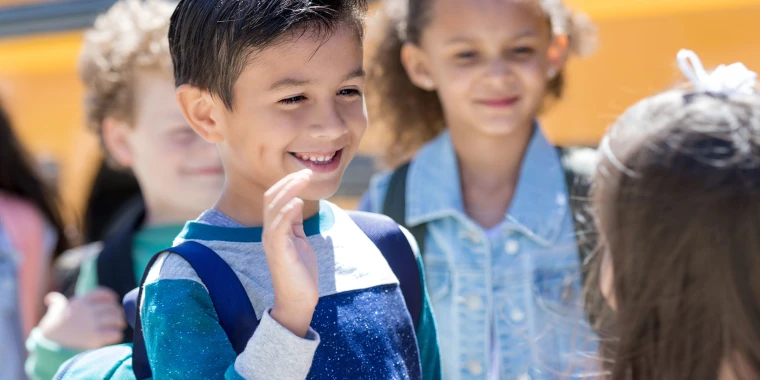
Conversation skills play a crucial role in children’s development and well-being
Amir Murtaza
As a professional specializing in child development, I always advocate the significance of imparting conversational manners to children. Such skills are not only vital for their personal growth and development but also play a crucial role in nurturing healthy relationships and thriving communities.
In Pakistan, there is significant concern about the youth displaying poor manners and disrespectful behavior on social media. The use of fiery and offensive language on online platforms has been exacerbated by political rivalries and differences of opinion on social issues. Despite the possibility of some youth not heeding advice, prioritizing the teaching of conversational manners to children remains crucial.
Conversational manners, also known as social or communication etiquette, are a set of unwritten rules and behaviors that guide our interactions with others during conversations. These manners play a crucial role in shaping how we connect with people, build relationships, and contribute to a positive and respectful society.
Conversation skills play a crucial role in children’s development and well-being. They empower kids to form friendships, express themselves effectively, and build strong connections with others. Effective conversation skills involve both speaking and listening abilities. This includes knowing how to initiate conversations with greetings or questions, using ‘Hello’ or asking curious queries. Children also learn how to appropriately gain attention with phrases like ‘Excuse me,’ establish engagement and rapport through eye contact, practice turn-taking for equitable speaking and active listening, demonstrate polite speech and courtesy, and recognize when it’s time to conclude their talking and allow others to contribute.
Conversational manners, also known as social or communication etiquette, are a set of unwritten rules and behaviors that guide our interactions with others during conversations
During my work, I always emphasize that as a parent or caregiver, you have a significant influence on your child’s conversational development. Merely engaging in conversations with your child whenever possible can be a valuable way to help them hone their conversation skills. Encourage them to speak and actively listen, creating an environment where they feel comfortable expressing themselves and learning from these interactions. By doing so, you can provide your child with the necessary tools to build lasting relationships and communicate effectively with others throughout their lives.
One of the fundamental aspects of conversational manners is respect and empathy. When children are taught to listen actively and acknowledge others’ perspectives, they learn to respond with empathy and understanding. This ability to appreciate different viewpoints fosters a sense of respect for the feelings and thoughts of others, promoting healthier and more meaningful interactions.
 Effective communication is another vital skill that conversational manners help develop. Encouraging children to speak clearly, use polite language, and take turns in conversations enables them to express themselves better. As a result, they can engage in more productive discussions and convey their ideas and emotions more effectively.
Effective communication is another vital skill that conversational manners help develop. Encouraging children to speak clearly, use polite language, and take turns in conversations enables them to express themselves better. As a result, they can engage in more productive discussions and convey their ideas and emotions more effectively.
Moreover, conversational manners aid in relationship building. When children practice these manners, they create a positive and approachable image, making it easier for others to engage with them. This can lead to the formation of meaningful friendships and connections, which are essential for social and emotional development.
Conversational manners also contribute to a child’s self-confidence
Inevitably, conflicts arise in any social setting, and having good conversational manners is critical for resolving these conflicts constructively. When children are taught to express their disagreements respectfully and listen to opposing viewpoints, they develop valuable conflict-resolution skills that will serve them well in various situations throughout their lives.
Conversational manners also contribute to a child’s self-confidence. By knowing how to navigate conversations gracefully, children can reduce social anxiety and actively participate in various settings. This newfound confidence prepares them for facing social challenges with greater ease.
Understanding conversational manners equips children to adapt their communication style appropriately in different environments, be it at home, school, social gatherings, or professional settings. This versatility in communication is a valuable asset that can help them thrive in various social contexts.
As children grow, they may find themselves in leadership roles or engaging in group activities. In these situations, conversational manners are crucial for fostering effective leadership skills and contributing to successful teamwork. Being able to communicate clearly and respectfully with peers is essential for creating a positive and productive team dynamic.
Furthermore, having good conversational manners can significantly impact a child’s reputation among peers, teachers, and the broader community. People are naturally more drawn to those who demonstrate courteous behavior, and this can lead to more positive and fulfilling social interactions.
Also read: A Guide to Conversational Etiquette
In today’s digital age, teaching children proper manners in online conversations and social media interactions is vital. Being respectful, avoiding offensive language, and understanding the potential impact of their words in a virtual space are all critical aspects of responsible digital citizenship.
Finally, conversational manners are not just relevant during childhood; they are lifelong skills. Children who learn and practice these manners early on are more likely to carry them into adulthood, leading to more fulfilling relationships and successful careers. These manners lay the foundation for healthy communication and meaningful connections throughout their lives.
It is important to mention that teaching children conversational manners is an investment in their personal development, fostering empathy, effective communication, and respect for others. These skills lay the foundation for building positive relationships, resolving conflicts, and thriving in various social settings. As children grow and carry these manners into adulthood, they contribute to creating a more polite, understanding, and harmonious society.
____________
 Amir Murtaza is a social sector researcher with a focus on child development and protection. He can be contacted at amirmurtaza1@hotmail.com
Amir Murtaza is a social sector researcher with a focus on child development and protection. He can be contacted at amirmurtaza1@hotmail.com